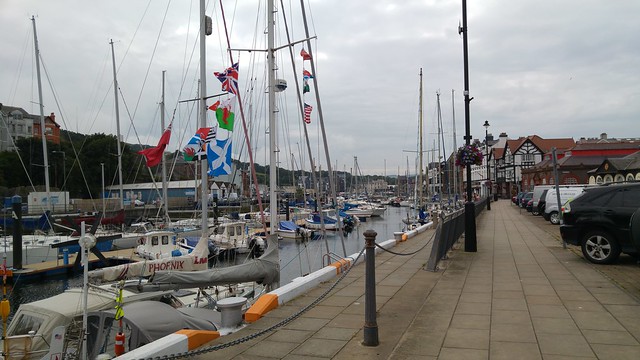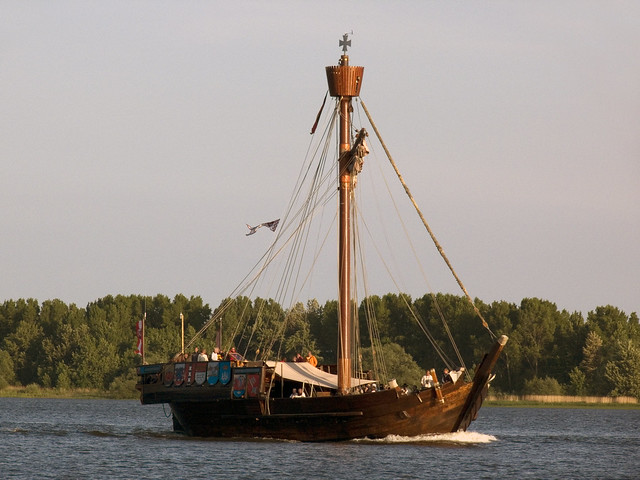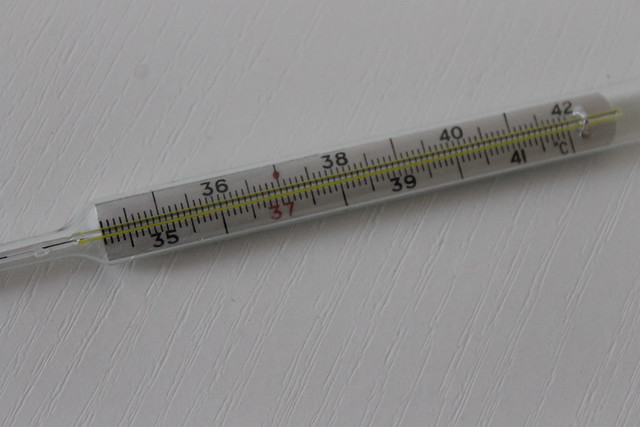Words for boat, ship and related vessels in Celtic languages.
Words marked with a * are reconstructions.
| Proto-Celtic | *longā- = boat, vessel |
|---|---|
| Old Irish (Goídelc) | long [l͈oŋɡ] = boat, ship longfort = camp, encampment, stronghold |
| Middle Irish (Gaoidhealg) | long, longa = boat, ship, vessel, long-ship, galley; vessel, container; house; bed longphort, lonngport = camp, encampment, temporary stronghold, mansion, princely dwelling; stronghold, fortress |
| Irish (Gaeilge) | long [l̪ˠɔŋ] = ship, vessel, container, house longbhá = shipwreck longbhac = embargo (on ships), naval blockade longbhoth = (navel) dock longbhriste = shipwrecked longcheárta, longchlós = shipyard longfort = camp, stronghold, fortified residence longlann = dockyard longmhar = abounding in ships longtheach = boat-house longthógáil = shipbuilding |
| Scottish Gaelic (Gàidhlig) | long [l̪ˠɔuŋg] = ship longas = shipping, shipment longart = seaport long-adhair = airship long-bhriste = shipwreck long-chasgadh = embargo long-fhada = galley (ship) long-fhànais = spaceship long-lann = dockyard long-phort = seaport long-thogail = shipbuilding |
| Manx (Gaelg) | lhong [loŋ] = ship, vessel lhong aer = airship lhong-chaardee = boatyard, shipyard lhong chrowal = hovercraft lhong liauyr = longship lhong-phurt = basin, seaport lhong spoar = spaceship lhong spooillee = pirate ship lhuingys = fleet, shipping |
| Proto-Brythonic | *llong = ship, vessel |
| Middle Welsh (Kymraec) | loggou, log, llogeu, llong = ship, boat llongi = to embark, ship llongeidiev, llongaid = shipload, shipful, shipment, cargo llog porth, llogborth, llong-borth = seaport, haven, harbour long-dorr = shipwreck longhawl, llonghavl. llongawl = nautical, maritime, naval llongỼyr, llongwr = seaman, sailor, mariner |
| Welsh (Cymraeg) | llong [ɬɔŋ] = ship, boat; the Great Bear (Ursa Major) llongaf, llongi = to embark, ship llongaid = shipload, shipful, shipment, cargo llongborth = seaport, harbour, dock, quay llongdor = shipwreck llongol = nautical, maritime, naval llongwr = seaman, sailor, mariner llong awyr = airship, aeroplane llong y diffeithwch, llong dir = ship of the desert, camel llong ofod = spaceship, spacecraft llong hofran = hovercraft llong danfor(ol) = submarine |
| Old Breton | locou = ship, boat |
Etymology: possibly from the Latin (navis) longa ([long] boat), or from an unknown source [Source].
| Proto-Celtic | *nāwā- = boat |
|---|---|
| Old Irish (Goídelc) | nau, nó = boat |
| Middle Irish (Gaoidhealg) | nó, noe = boat (generally a small one, propelled by oars) |
| Irish (Gaeilge) | nae [n̪ˠeː] = boat |
| Middle Welsh (Kymraec) | noe = large vase, bowl |
| Welsh (Cymraeg) | noe = (wooden) vessel used in making butter, kneading dough, etc. shallow dish, bowl, pan, basin, laver, wooden trough noeaid = dishful |
| Cornish (Kernewek) | new = sink, trough, washbasin new doos = trough new-droghya = sheep dip |
| Middle Breton (Brezonec) | néau, néff, neo, nev = trough, bucket néay-doas, neo-doaz, nev-doaz = kneading-trough |
| Breton (Brezhoneg) | nev = trough, bucket |
Etymology: from Proto-Indo-European *néh₂us (boat), from *(s)neh₂- (to swim) [Source]. Words from the same roots include navy, navigate, andnautical in English [Source].
| Old Irish (Goídelic) | bát = boat |
|---|---|
| Middle Irish (Gaoidhealg) | bát, bád = boat |
| Irish (Gaeilge) | bád [bˠɑːd̪ˠ/bˠaːd̪ˠ] = boat bádóireacht = (act of) boating bád iascaigh = fishing boat bád seoil = sailing boat bád tarrthála = lifeboat |
| Scottish Gaelic (Gàidhlig) | bàta [baːhdə] = boat, craft bàtaireachd = boating bàta-aigeil = submarine bàta-asieig = ferry boat bàta-falbhain = hovercraft bàta-iasgaich = fishing boat bàta-sàbhalaidh = lifeboat bàta-siùil = sailing boat |
| Manx (Gaelg) | baatey [ˈbɛːðə] = boat, even keel baateyrys = boating baatey assaig = ferry boat baatey bieauid = speedboat baatey eeastee = fishing boat baatey etlagh = seaplane baatey sauaillagh = lifeboat baatey |
| Middle Welsh (Kymraec) | bat, bad = boat badwr = boatman, waterman, ferryman |
| Welsh (Cymraeg) | bad = boat, barge, (small) ship badaid = boatful badlong = ketch, pinnace badwr = boatman, waterman, ferryman bad acbub = lifeboat bad pysgota = fishing boat |
Etymology: from Old English bāt (boat) or from Old Norse bátr (boat), both of which come from Proto-Germanic *baitaz (boat, ship), from Proto-Indo-European *bʰeyd- (to break, split) [Source].
The English word boat comes from the same roots, as do words for boat in many other languages [Source].
| Middle Irish (Gaoidhealg) | scaf, scaffu, scafa = ship |
|---|---|
| Irish (Gaeilge) | scafa [sˠkɑfˠə] = ship |
| Scottish Gaelic (Gàidhlig) | sgoth [sgɔh] = skiff sgothag = little skiff, small yacht, cutter sgiof [sgʲif] = skiff (boat) sgib [sgʲib] = small ship (archaic) |
| Manx (Gaelg) | skiff = skiff |
| Middle Welsh (Kymraec) | esgraff, yscraff, ysgraff = boat, barge, ferry |
| Welsh (Cymraeg) | ysgraff, sgraff = boat, barge, skiff, ferry, ship, raft ysgraffbont = pontoon ysgraffwr, ysgraffydd = ferryman, boatman, bargee |
| Middle Cornish (Cernewec) | scath = boat scath hîr = long boat |
| Cornish (Kernewek) | skath = boat skathik = dinghy skath hir = barge skath kloos = raft skath tan = motor-boat skath sawya = lifeboat skath-wolya = sailing boat |
| Middle Breton (Brezonec) | scaph, scaff, sqaff, skaf = skiff skavat, skafad = contents of a skiff |
| Breton (Brezhoneg) | skaf = skiff, landing net |
Etymology: possibly from Latin scapha (a light boat, skiff), from Ancient Greek σκάφη (skáphē – light boat, skiff), from σκᾰ́πτω (skáptō – to dig, delve); or from Old Norse skúta (small craft, cutter) [Source].
| Proto-Celtic | *lestrom = vessel, pot |
|---|---|
| Old Irish (Goídelic) | lestar = vessel, container, beehive |
| Middle Irish (Gaoidhealg) | lestar = vessel, container, beehive, ship, boat lestarach = frequented by ships |
| Irish (Gaeilge) | leastar [ˈl̠ʲasˠt̪ˠəɾˠ] = vessel, container (for liquids), cask, firkin, (wash) tub, punt (boat), tub; squat, dumpy person |
| Scottish Gaelic (Gàidhlig) | leastar = small boat, cup, vessel, furniture of a house |
| Proto-Brythonic | *llestr = vessel, container |
| Old Welsh | lestir = vessel, container |
| Middle Welsh (Kymraec) | llestri, llestyr = vessel, container llestreit, llestraid, llestred = vesselful, caskful, tubful, bushel llestryn, llestrun = small vessel, small barrel, boat |
| Welsh (Cymraeg) | llestr [ɬɛstr/ˈɬɛstɛr] = vessel, bushel, ship, boat, beehive, womb, uterus llestraid = vesselful, caskful, tubful, bushel llestrwr = maker of vessels, potter llestryn = small vessel, small barrel, boat, human body |
| Old Cornish | lester = vessel, container |
| Middle Cornish (Cernewec) | lester = vessel, ship golowlester = a light-vessel, a lamp |
| Cornish (Kernewek) | lester = dish, ship, utensil vessel lester eth = steam boat lester-bargesi = hovercraft lester=gwari = yacht lester-sedhi = submarine annedh lester = houseboat lestrier = (kitchen) dresser lestriva = dockyard lestryn = container |
| Old Breton | lestr = ship, vessel, container |
| Middle Breton (Brezonec) | lestr = ship, vessel, container lestr-dre-dan = steamship lestr-kroazer, lestr-reder = cruiser |
| Breton (Brezhoneg) | lestr [ˈlɛstʁ] = vessel, container, ship lestr-spluj[lɛs.ˈplyːʃ] = submarine aerlestr [ˈɛʁlestʁ] = aircraft lestrañ [ˈlɛstrã] = to board, load (a vehicle) dilestrañ [diˈlɛsːtrã] = to disemark |
Etymology: possibly from Proto-Indo-European *pleḱ- (to fold, weave). The Goidelic words were possibly borrowed from Proto-Brythonic [Source].
| Middle Welsh (Kymraec) | cwch, cŵch = boat, beehive |
|---|---|
| Welsh (Cymraeg) | cwch [kʊχ] = boat, beehive |
| Middle Cornish (Cernewec) | coc = boat |
| Cornish (Kernewek) | kok = fishing boat |
| Middle Breton (Brezonec) | couc’h = cover of a beehive, hull (of a boat) |
| Breton (Brezhoneg) | kouc’h = cover of a beehive, hull (of a boat) kouc’hañ = to cover (a beehive) |
Etymology: possibly cognate with the English word cog (a clinker-built, flat-bottomed, square-rigged mediaeval ship of burden, or war with a round, bulky hull and a single mast; a small fishing boat), which comes from Middle Dutch cogghe (clinker-built, flat-bottomed sailing cargo ship of the Middle Ages), from Proto-Germanic *kuggō, from PIE *gugā (hump, ball) [Source].
Words marked with a * are reconstructions.
Sources: Wiktionary, Am Faclair Beag, Online Manx Dictionary, Teanglann.ie, eDIL – Electronic Dictionary of the Irish Language, In Dúil Bélrai English – Old Irish glossary, Geiriadur Prifysgol Cymru, Gerlyver Kernewek, Dictionaire Favereau, TermOfis, English – ProtoCeltic WordList (PDF), Etymological Dictionary Of Proto Celtic, Cleasby & Vigfusson Old Norse dictionary













